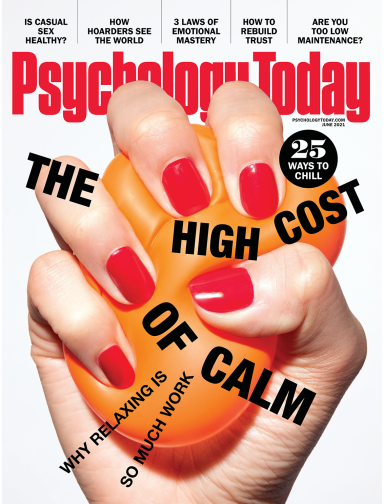
James Lake, MD
Anxiety
How Exercise Reduces Anxiety
Regular physical activity reduces generalized anxiety and panic attacks.
Posted October 16, 2018 Reviewed by Devon Frye
The relationship between physical activity and anxiety is multi-factorial and includes both psychological and physiological components. Many hypotheses have been proposed to explain the anxiety-reducing benefits of regular exercise. Psychological theories include distraction, enhanced self-efficacy, mastery, and psychological benefits of regular social interaction. Physiological mechanisms include beneficial effects of regular exercise on the levels of several neurotransmitters that affect anxiety including serotonin, norepinephrine, dopamine, and endorphins.
Regular exercise alleviates chronic anxiety and may reduce the frequency and severity of panic attacks.
Individuals who report chronic anxiety frequently engage in strenuous physical activity in efforts to alleviate their symptoms. Open studies suggest that both aerobic exercise and strength training improve anxiety when done on a regular basis ( Paluska 2000 ). The beneficial effects of exercise are similar to those of meditation and regular relaxation. Acute onset anxiety generally responds better to exercise than long-standing symptoms of anxiety.
A workout program consisting of at least 20 to 30 minutes of daily exercise can significantly reduce symptoms of generalized anxiety. Findings of a prospective 10-week study of exercise in individuals prone to panic attacks show that regular walking or jogging (4 miles three times a week) reduces the severity and frequency of panic attacks (Stevinson 1999).
Most studies on the effects of physical activity on anxiety have been done in healthy adults. Although some studies have been done in children, adolescents, and the elderly, more studies need to be done to determine the kind, intensity, frequency, and duration of physical activity that are most effective in reducing anxiety in these age groups.
In my own 20+ year clinical practice, I have observed that chronically anxious patients who follow a regular exercise program usually pay more attention to their health in general, and tend to respond more rapidly to both prescription medications and integrative treatments compared to patients who are not physically active.
Safety Issues: Individuals in good health can engage in vigorous exercise with few limitations. However, individuals with heart disease, chronic pain, or other serious medical problems should consult with their physician before starting an exercise program.
To learn more about non-medication treatments for anxiety, see my short e-book "Anxiety: The Integrative Mental Health Solution."
References
Anxiety: The Integrative Mental Health Solution, by James Lake M.D. http://theintegrativementalhealthsolution.com/anxiety-the-integrative-mental-health-soution.html
Physical Activity and Mental Health: Current Concepts, Paluska and Schwenk https://www.ncbi.nlm.nih.gov/pubmed/?term=Paluska+SA%2C+Schwenk+TL.+Physical+activity+and+mental+health













